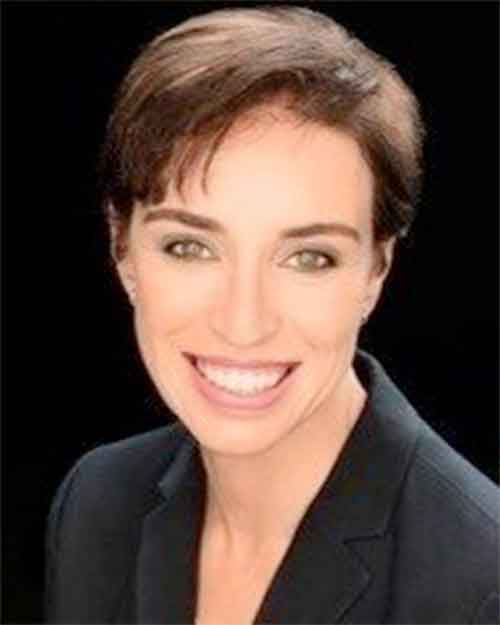
Dr Emily Stone
The inaugural Thoracic Oncology Group of Australasia (TOGA) Annual Scientific Meeting was held recently with the theme of equity and innovation in multidisciplinary lung cancer care.
The limbic spoke to meeting convenor Dr Emily Stone for some highlights of the meeting.
Dr Stone, also deputy chair of the TOGA board of directions, said the meeting was “surprisingly successful and energising” given its virtual format.
She said its strengths came partly from the diversity within the program.
“That was very intentional but we feel like we have really expanded the brief with the new iteration of TOGA. So it’s not just trials of pharmacotherapeutic agents but really addressing lung cancer from many angles such as the screening angle and the patient/consumer angle.”
Dr Stone said one of the highlights of the meeting was the plenary session presentation by Professor Pan-Chyr Yang from the National Taiwan University and senior investigator on the Taiwan Lung Cancer Screening in Never-Smoker Trial (TALENT).
“They have an astounding statistic which is that 53% of lung cancer cases in Taiwan are never- smokers. And that is related to the success in the reduction of smoking programs and that they have a very low rate of female smoking,” Dr Stone said.
“The vulnerabilities in their women come from other things such as their cooking fuels and environmental pollution.”
“We don’t want to take away from the importance of smoking cessation but what we want to do is support our non-smokers who get lung cancer. And as we move towards a targeted screening program for smokers in Australia, we absolutely have to think about how we will screen for lung cancer in never-smokers.”
She said one of the strongest risk factors for lung cancer reported in Taiwan was family history.
“They had cases with four first-degree relatives with lung cancer. That’s not something I’ve ever seen. It doesn’t come up in clinical practice often…but perhaps we don’t look for it well.”
“What he did was really put the case for thinking scientifically about how you predict lung cancer in different groups and the Asian groups will be different from the Australian groups but we will be able to learn a lot from them.”
Brilliant presentation from Prof Pan Chyr Yang detailing lung cancer in never smokers. So much data to unpack from this talk including differences in Asian vs Caucasian signatures, germline predisposition and NitoPAH as environmental factor #TOGAASM21 @TOGAANZ pic.twitter.com/iiEnjmdvuD
— Tom John, MBBS, PhD (@TommyJohn00) July 22, 2021
Dr Stone said the discussion on lung cancer screening recognised the enthusiasm for a program but “we want to be careful, we want to do it well”.
“There is data out of the US to show only 2% of eligible people for CT screening actually have lung cancer. And we know if we don’t do better than that we will waste money.”
“We want to make sure that if and when we roll it out, we’ve got those bases covered in terms of getting it to the right people, funding it well, making sure it is cost effective, and making sure we properly look after the people who have the scan whatever the findings are.”
Dr Stone said the presentations from new investigators ranged across neoadjuvant therapy, molecular issues, screening issues and survivorship.
“So the new investigator abstracts and presentations reflected the diversity in the program overall. And gosh, that was encouraging. It means that anyone who has an interest in lung cancer, whether it is basic science or nursing or public health, has an opportunity to participate in this group,” she said.
She added there was a good presence of lung cancer nursing themes and issues during the ASM demonstrating a clear commitment to expanding the role of lung cancer nurses.
Lung cancer CNC Sara McLaughlin-Barrett provides a brilliant practical tool for funding nurses.
Here👇are the justifications for more #nurses and more funding for them.Patients' unmet needs can't be met if resources are limited. #TOGAASM21 @TOGAANZ pic.twitter.com/wnfhEu3ftY
— Lillian Leigh (@ProjectBreath) July 23, 2021
Dr Stone some other practical discussions including the need for a national lung cancer registry and the importance of teletrials.
“Some of the surgical presentations were really quite fascinating. We had Associate Professor Jay Lee from the US talking about the neoadjuvant options which hasn’t been an area which was well explored in the past.”
Cardiothoracic surgeon Phillip Antippa also chaired a session on gaps and inequalities in lung cancer care.
“We had a closed scientific committee meeting in the middle of the ASM for [research] concept development and out of that we have people putting up their hands to work on some national studies.”
“And then we finished off with an MDT masterclass which was a great way to finish because….the chairs put together a beautifully curated series of cases. Panel members had not seen the cases before so it was like running a real MDT.”
She summed up the inaugural ASM as a great success which brought together lots of people committed to lung cancer, ideas and plans.
“It’s a very inclusive group looking for creative input across the disciplines.”